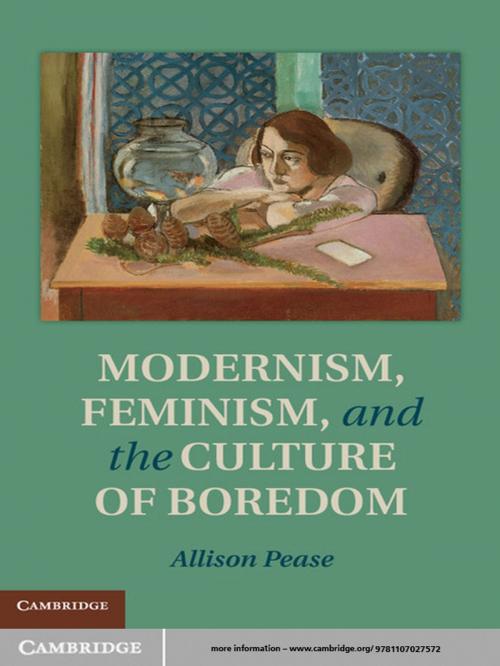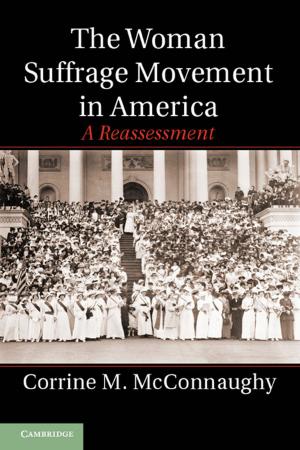Modernism, Feminism and the Culture of Boredom
Fiction & Literature, Literary Theory & Criticism, Women Authors, Nonfiction, Social & Cultural Studies, Social Science| Author: | Allison Pease | ISBN: | 9781139540506 |
| Publisher: | Cambridge University Press | Publication: | August 27, 2012 |
| Imprint: | Cambridge University Press | Language: | English |
| Author: | Allison Pease |
| ISBN: | 9781139540506 |
| Publisher: | Cambridge University Press |
| Publication: | August 27, 2012 |
| Imprint: | Cambridge University Press |
| Language: | English |
Bored women populate many of the most celebrated works of British modernist literature. Whether in popular offerings such as Robert Hitchens's The Garden of Allah, the esteemed middlebrow novels of May Sinclair or H. G. Wells, or now-canonized works such as Virginia Woolf's The Voyage Out, women's boredom frequently serves as narrative impetus, antagonist and climax. In this book, Allison Pease explains how the changing meaning of boredom reshapes our understanding of modernist narrative techniques, feminism's struggle to define women as individuals and male modernists' preoccupation with female sexuality. To this end, Pease characterizes boredom as an important category of critique against the constraints of women's lives, arguing that such critique surfaces in modernist fiction in an undeniably gendered way. Engaging with a wide variety of well- and lesser-known modernist writers, Pease's study will appeal especially to researchers and graduates in modernist studies and British literature.
Bored women populate many of the most celebrated works of British modernist literature. Whether in popular offerings such as Robert Hitchens's The Garden of Allah, the esteemed middlebrow novels of May Sinclair or H. G. Wells, or now-canonized works such as Virginia Woolf's The Voyage Out, women's boredom frequently serves as narrative impetus, antagonist and climax. In this book, Allison Pease explains how the changing meaning of boredom reshapes our understanding of modernist narrative techniques, feminism's struggle to define women as individuals and male modernists' preoccupation with female sexuality. To this end, Pease characterizes boredom as an important category of critique against the constraints of women's lives, arguing that such critique surfaces in modernist fiction in an undeniably gendered way. Engaging with a wide variety of well- and lesser-known modernist writers, Pease's study will appeal especially to researchers and graduates in modernist studies and British literature.















